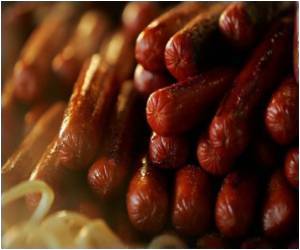The role of hot dog-derived N-nitroso compounds in colon cancer has been refuted in a recent study.

"It was proposed that N-nitroso compounds in hot dogs and other processed meats can cause colon cancer," said Sidney S. Mirvish, Ph.D., professor emeritus at the Eppley Institute for Research in Cancer and Allied Diseases at the University of Nebraska Medical Centre in Omaha.
Mirvish and colleagues discussed the view that colon cancer was induced by components of the apparent nonvolatile N-nitroso compounds that occur in processed (nitrite-preserved) meat.
If the level of N-nitroso compounds was an important cause of colon cancer, "the drop in N-nitroso compound content caused by the mandated changes in processed meat should have been accompanied by a drop in the incidence of colon cancer," said Mirvish.
In fact, since the mandated changes were introduced 33 years ago, the death rate for colon cancer has dropped sharply.
"This may have been due mostly to earlier detection and better treatment of this disease," he claimed.
Advertisement
The findings were reported at the 10th AACR International Conference on Frontiers in Cancer Prevention Research, held Oct. 22-25, 2011.
Advertisement















